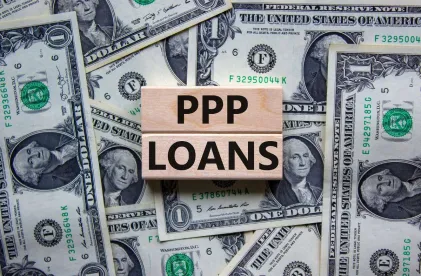Given the volume of funds that were quickly dispersed during the COVID-19 pandemic, there were plenty of new areas for fraud and abuse. The Department of Justice (“DOJ”) initially set its sights on targeting the borrowers of such funds. Now, the DOJ is ramping up enforcement with the first ever False Claims Act (“FCA”) settlement with a lender of Paycheck Protection Programs (“PPP”) funds.
Spurred by the COVID-19 pandemic, the Coronavirus Aid, Relief and Economic Security (“CARES”) Act authorized the issuance of PPP loans in order to provide relief to small businesses experiencing economic hardship during the pandemic. It was expected that those loans would be forgiven if certain conditions were met. Lenders originating the PPP loans were entitled to receive a fixed fee from the Small Business Administration (“SBA”), ranging from 1% to 5% depending on the size of the loan.
At the onset of the program, Lenders of such PPP loans were concerned with the potential for private lawsuits from would-be borrowers on the basis of bank lending practices, and not with government enforcement. As I have written about before, initially, the government enforcement in this space focused solely on borrowers, who allegedly made false statements in connection with obtaining loans. However, on September 13th of this year, the DOJ revealed an expanded focus, targeting the lenders of PPP loans as well as the borrowers in an FCA settlement. In a press release the U.S. Attorney’s Office for the Southern District of Texas announced that a PPP lender, Prosperity Bank, had agreed to pay $18,673.50 to resolve allegations it improperly processed a PPP loan on behalf of an ineligible customer, Woodlands Plain Institute PLLC (“Woodlands”).
According to the press release, Woodlands applied for a PPP loan in the amount of $213,400, which was processed and approved by Prosperity Bank in May of 2020. The application for the loan included a question asking whether the applicant (or any individual owning more than 20% equity) was subject to an indictment, criminal information, arraignment or other means by which formal criminal charges are brought in any jurisdiction.
The government alleged that at the time of application, the sole owner of Woodlands, Dr. Emad Bishai, was facing criminal charges arising from his practice of prescribing opioid medicines. Bishai was arrested in November of 2019 under allegations that he committed unprofessional or dishonorable conduct by prescribing to a person he knew or should have known was an abuser of controlled substances and of prescribing without a medical purpose, according to the Montgomery County District Attorney’s Office. Despite his arrest, when filling out the application for the PPP loan, Bishai checked the box marked “No” and initialed his name beneath the question. Bishai was formally indicted in August of 2020.
When the application was processed, Prosperity Bank employees knew Bishai was ineligible to apply for the PPP loan due to the pending criminal charges against him. However, the bank processed the application containing the false representation anyway and ultimately granted the money to Bishai. As a result of the false application, Prosperity Bank received a 5% processing fee of $10,670 from the government. Bishai separately entered into a settlement for $523,331 in November 2021 to resolve his liability arising from submission of false claims for the placement of electro-acupuncture devices and his submission of the fraudulent PPP loan application. He also repaid the PPP loan in full in 2022.
The FCA settlement with Woodlands is an example of the government’s continuing enforcement focus on fraud in the COVID-19 space, and suggests that enforcement efforts are not slowing down, rather they are expanding to new targets and using new tools such as the FCA. Indeed, there is certainly the possibility for a flood of PPP-related qui tam suits brought by whistleblowers, acting as relators on behalf of the government. Considering the expanded focus of enforcement, financial institutions involved in lending COVID-19 relief funding should take great care to ensure the eligibility of applicants, or risk becoming a target for government enforcement and significant civil or criminal consequences. Similarly, those who obtained COVID-19 relief funds through PPP loans should take great care when utilizing such funding.




 />i
/>i
